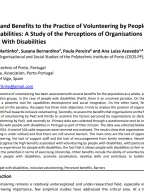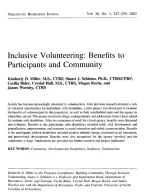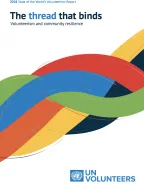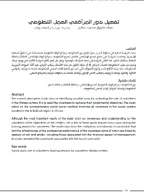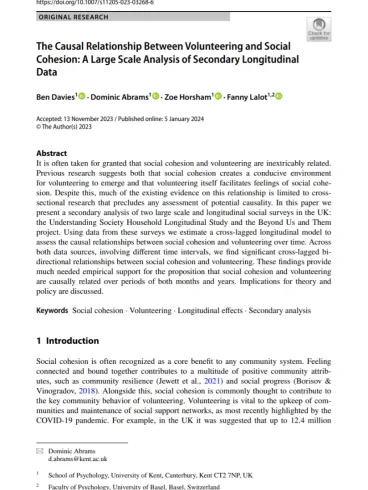
The Causal Relationship Between Volunteering and Social Cohesion: A Large Scale Analysis of Secondary Longitudinal Data
Fast read
This research paper provides an important basis for the argument that there are causal relationships between social cohesion and volunteering. Through a secondary analysis of data from two large scale social surveys in the United Kingdom, the paper finds consistent evidence for a bi-directional, causal relationship between social cohesion and volunteering.
Synthesis
- It is often taken for granted that social cohesion and volunteering are inextricably related. Previous research suggests both that social cohesion creates a conducive environment for volunteering to emerge and that volunteering itself facilitates feelings of social cohesion. Despite this, much of the existing evidence on this relationship is limited to cross-sectional research that precludes any assessment of potential causality.
-
In this paper, a secondary analysis of two large scale and longitudinal social surveys in the United Kingdom are presented: the Understanding Society Household Longitudinal Study and the Beyond Us and Them project. Using data from these surveys, a cross-lagged longitudinal model was estimated to assess the causal relationships between social cohesion and volunteering over time.
- Across both data sources, involving different time intervals, significant cross-lagged bi-directional relationships between social cohesion and volunteering are found. These findings provide much needed empirical support for the proposition that social cohesion and volunteering are causally related over periods of both months and years.
- Specifically, people who felt more cohesive were more likely to volunteer at later time points, and people who volunteered were more likely to feel socially cohesive later in time. However, this bi-directional relationship seems to apply only to horizontal forms of social cohesion. Vertical cohesion, which reflects cohesion with institutional authority, had a unidirectional relationship to volunteering. More concretely, people who volunteered felt more trusting of politicians and confident in government institutions at later time points, but these feelings of trust and confidence did not in turn affect future volunteering.
- Implications for theory and policy are discussed.













